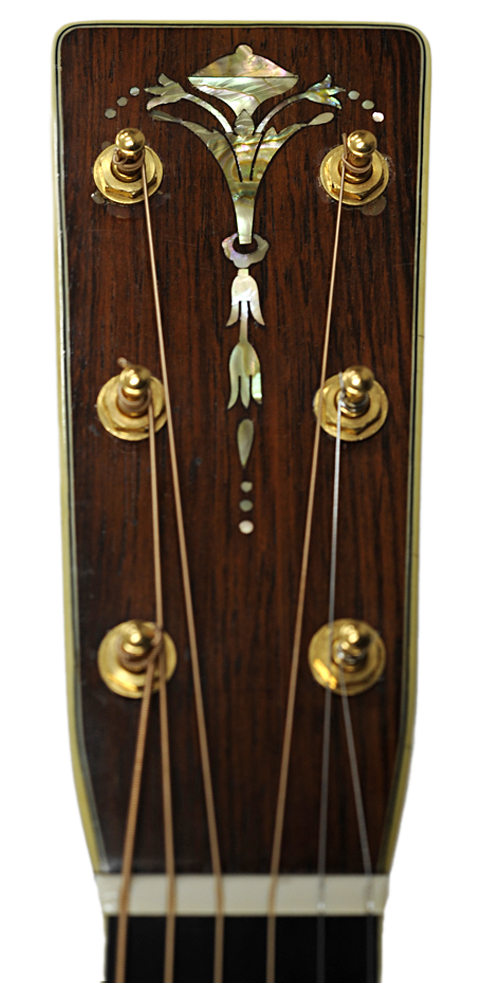
A Primer for
Obtaining Proper Permits for Shipping Vintage Guitars
and Other Musical Instruments Overseas from the USA

Complying with
The Convention on International Trade in Endangered Species of Wild Fauna and Flora (CITES)
and the Endangered Species Act (ESA)
While Exporting Vintage Guitars
Shipping vintage instruments overseas has become an involved and lengthy process due to the restrictions on endangered species including Brazilian rosewood (Dalbergia nigra) resulting from the CITES Treaties. While the backs and sides of the highest quality Martin guitars were made from Brazilian Rosewood from 1833 to 1969, even vintage "mahogany guitars" such as a Martin Style 18 may have Brazilian rosewood fingerboards and bridges, and all built through the 1960's have Brazilian rosewood headstock overlays. Martins built until the mid 1960's have ivory nuts, and many Martins have pearl or abalone inlays. While Gibson built fewer rosewood guitars, and most rosewood Gibsons made after 1934 were made with East Indian Rosewood, many were made with Brazilian fingerboards. And while many Gibsons were made with fingerboards from other species of wood, even the experts debate which woods were used, and even a guitar merely suspected by an overzealous agent of containing Brazilian rosewood in error is not immune from being tied up in red tape, and even confiscated, and you will have the burden of proof to convince them of their error.
According to the CITES Convention, which became effective in 1975, Brazilian rosewood, ivory and tortoiseshell area all categorized as being in Appendix I, the most restricted category of species threatened with extinction.
Guitar builders in North American have used Mother of Pearl, pink, red, or green abalone exclusively, while only "white abalone" (Haliotis sorenseni) is restricted, but this can still allow for confusion.
Permits are required for instruments shipped to any of the 173 CITES Convention signatory nations.
Instruments shipped without proper permits may be confiscated and lost to the owner forever with no compensation.
Instruments built with "pre-convention" materials are exempt from CITES, and therefore qualify for permits. To qualify as "pre-convention", materials must have been obtained before the date the endangered species was included in the Convention:
Ivory - June 1, 1947
Hawksbill turtle - July 1, 1975
Brazilian rosewood - June 11, 1992
Permits and Licenses must be obtained from both the USDA (US Dept. of Agriculture) APHIS (Animal and Plant Health Inspection Services) and the US Fish and Wildlife Services
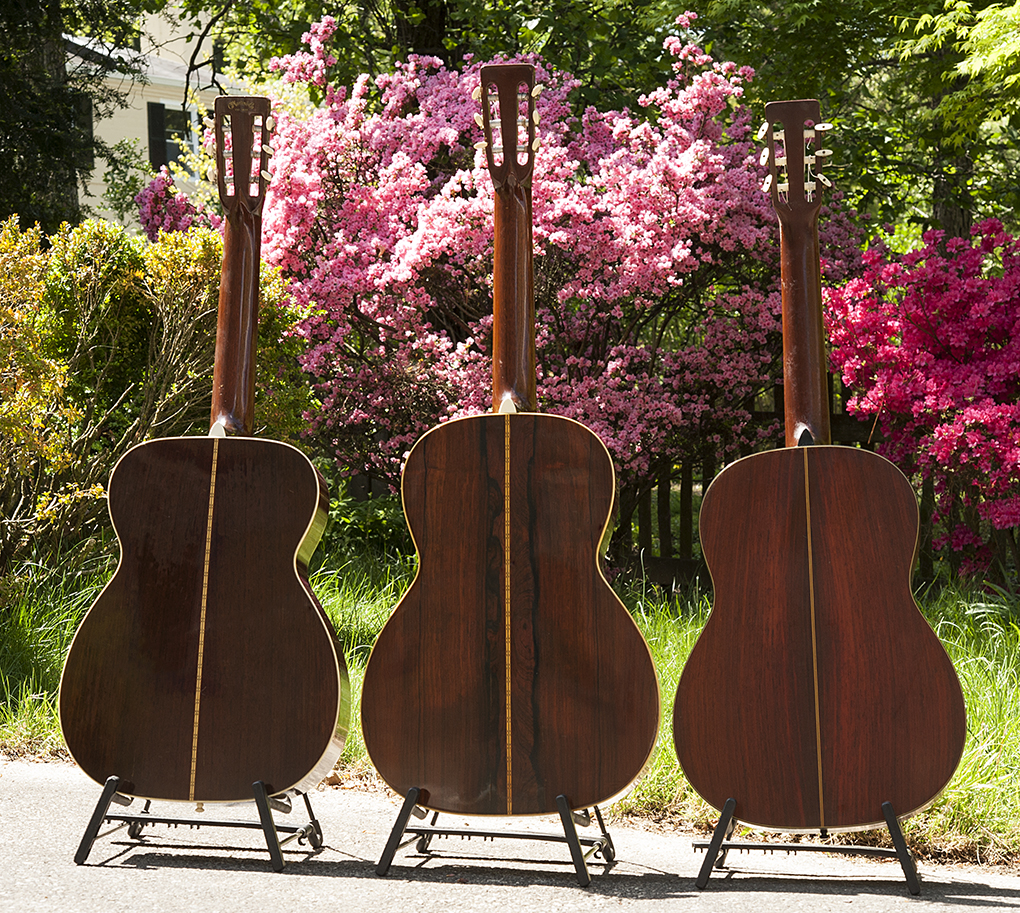
The USDA Application for Protected Plant Permit to Engage in the Business of Importing, Exporting, or Re-Exporting Terrestrial Plants.
The process for shipping vintage guitars overseas begins with the USDA form #621
"Application for Protected Plant Permit to Engage in the Business of Importing, Exporting, or Reexporting Terrestrial Plants",
which may be obtained for a $70 fee.
The USDA may be reached for information at (877) 770-5990 or on line at:
http://www.aphis.usda.gov/import_export/plants/plant_imports/cites_endangered_plants.shtml
The #621 application form is available at:
http://www.aphis.usda.gov/library/forms/pdf/ppqform621.pdf
You may pay on-line with a VISA or other credit card at
http://www.aphis.usda.gov/permits/login_epermits.shtml
Or go to:
www.aphis.USDA.gov
On the right side of the page, in the blue box, click "Apply for Permit"
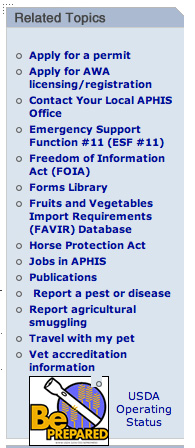
The second to last line click "plants, organisms, or soil"

At the bottom click "apply on line" for PPQ 621.
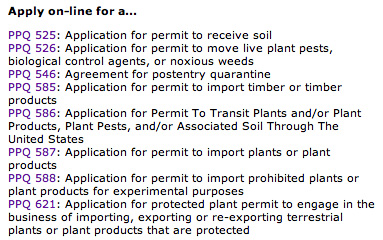
Applying for US Fish and Wildlife Service Licenses and Permits
Once you have the UDSA permit, you should go to the Fish and Wildlife Service to begin a three step process.
Fish and Wildlife Service information is available at:
(800) 358-2104
(703) 358-2104
Permits and re-export certificates are issued by the Office of Management Authority of the U.S. Fish and Wildlife Service (FWS).
(800) 344-9453.
Step 1) First you must apply for a one year import/export license for a $70 fee with the form found at:
www.fws.gov/forms/3-200-3.pdf
Clicking on the blue box on the upper left will take you to:
http://www.fws.gov/le/regional-permit-offices.html
to find the regional office to submit the application to, and to find a list of phone numbers and e-mail addresses for the regions.
Step 2) Once your import/export license has arrived, and you have identified specific instruments to ship, you may apply for a permit for "Export or re-export of plants".
www.fws.gov/forms/3-200-32.pdf
The permit will take 60 to 90 days to obtain.
A separate permit is required for each shipment shipped at a given time to a single customer at the same address. Several guitars may be shipped on a single permit if shipped to the same customer in one crate, or in separate cartons marked "1 of 3", "2 of 3" and "3 of 3", etc.
The "PRE-CONVENTION/SINGLE SHIPMENT" processing Fee is $75.
To save time, and some expense, it is possible to establish instead a "MASTER FILE" for a processing fee of $200.
Renewal and/or Amendment of an Established Master File may be obtained for a processing Fee of $100.
When applying for the multi-use permit, you should specify how many single use shipping permits you anticipate using in the coming six months, paying $5 for each permit, which is valid for 6 months.
For future shipments, additional permits may be requested using form 3-200-74 available at: http://www.fws.gov/forms/display.cfm?number1=200
This will save you from waiting an additional 90 days to process a permit each time you wish to make an additional shipment. You may apply for additional single use permits at any time in the future.
Step 3) Once you have the required permits, a few days prior to shipping you should call to make an appointment for an inspection of the guitars and to ship the instruments from the regional office, and to complete the Wildlife Declaration form.
Regional offices are located in Anchorage, Atlanta, Baltimore, Boston, Chicago, Dallas-Fort Worth, Honolulu, Los Angeles, Miami, Newark/New York, New Orleans, Portland, San Francisco and Seattle.
The Boston office is at (617) 889-6616
The Newark office is at (908) 787-1321
All Office of Law Enforcement Regional Permit Office numbers are listed at http://www.fws.gov/le/regional-permit-offices.html
To find the resident agents in your region, go to: http://www.fws.gov/offices/statelinks.html and click on the "US Fish and Wildlife Service Offices in...", or call one of the Fish and Wildlife Service information numbers listed above.
You need to inquire individually to learn the fee for each inspection, which can cost as much as another $250, but varies depending on such criteria as the day/time, number of instruments needing inspection, and distance the agent may need to travel.
You may do well to come to your inspection prepared to demonstrate that your guitar was built after the dates the endangered species were included in the Convention.
In the case of Martin guitars, a valid list of serial numbers will show the lack of serial numbers on guitars produced before 1898, well before the Convention dates, and will establish the dates of Martins produced after 1898.
Martin ended the use of genuine tortoiseshell by 1918, well before the Convention date of 1975.
Martin discontinued the use of Brazilian rosewood as a standard material by the end of the 1960's, well before Convention date of 1992. Martin has built custom guitars with Brazilian rosewood in recent years. For these guitars, you should be prepared with documentation to show that certified wood was used.
Martin produced guitars with ivory nuts until the mid 1960's. This could present a problem for guitars built after the Convention date of 1947.
Once you have a permit, you should forward a copy to the receiver of the instrument who will need to submit it to obtain a license to import the instrument into the destination country.
If you are traveling in person with a vintage instrument, you will also need to apply for the proper permits and travel through one of the cities designated as authorized ports for importing or exporting CITES species.
New regulations have recently been formed to establish a "passport" to accompany your instrument in travel, allowing one to travel regularly with a same vintage instrument without fear of confiscation. More information to follow soon.
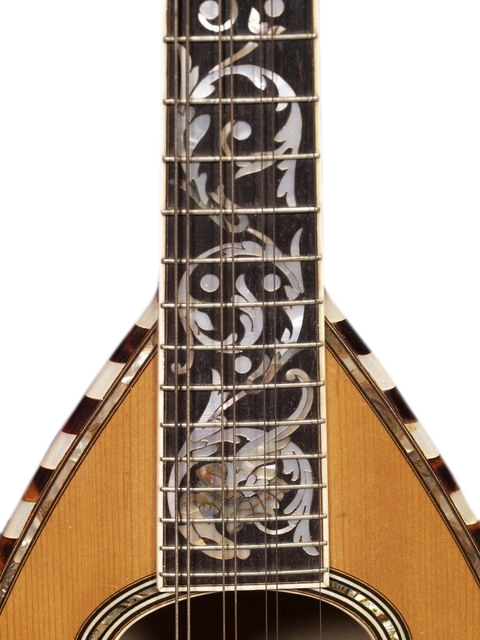
Resources:
the USDA (US Dept. of Agriculture):
www.aphis.USDA.gov
Federal Fish and Wildlife Permit Application Form:
http://www.fws.gov/forms/3-200-32.pdf
Office of Law Enforcement Regional Permit Offices:
http://www.fws.gov/le/regional-permit-offices.html
US Fish and Wildlife Service State Offices:
http://www.fws.gov/offices/statelinks.html
APHIS (Animal and Plant Health Inspection Services) APPLICATION FOR PROTECTED PLANT PERMIT TO ENGAGE IN THE BUSINESS OF IMPORTING, EXPORTING OR RE-EXPORTING TERRESTRIAL PLANTS:
http://www.aphis.usda.gov/library/forms/pdf/ppqform621.pdf
USDA Permits:
http://www.aphis.usda.gov/permits/ppq_epermits.shtml
The CITES Appendices:
http://www.cites.org/eng/app/index.php
The CITES (the Convention on International Trade in Endangered Species of Wild Fauna and Flora) Website:
http://www.cites.org
APHIS CITES Factsheet:
IBMA "You Can't Take My Guitar! What Every Traveling Musician Should Know About CITES":
https://ibma.org/node/52
Fretboard Journal "Guitar Loverís Guide to the CITES Conservation Treaty":
http://www.fretboardjournal.com/features/magazine/guitar-loverís-guide-cites-conservation-treaty
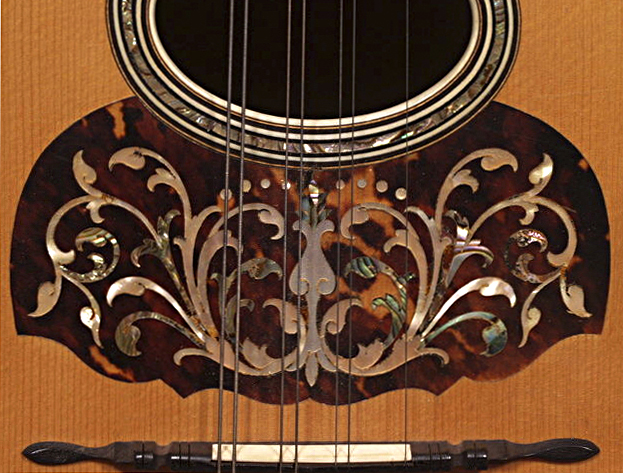
Application Forms:
PPQ 621
http://www.aphis.usda.gov/library/forms/pdf/ppqform621.pdf
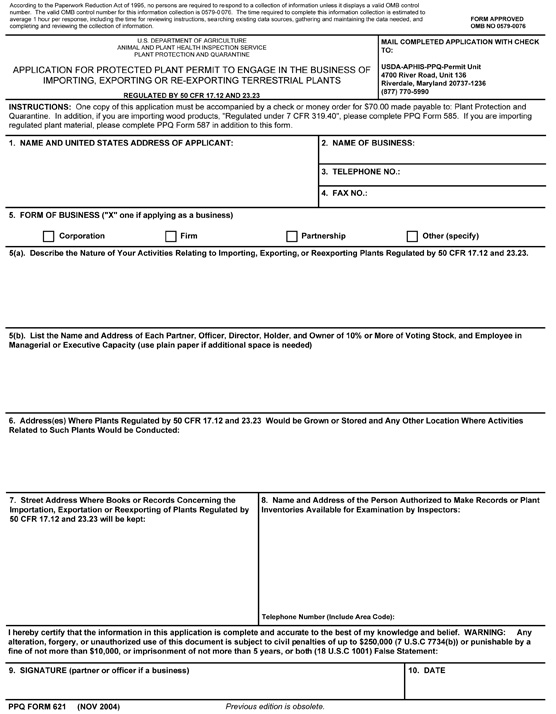
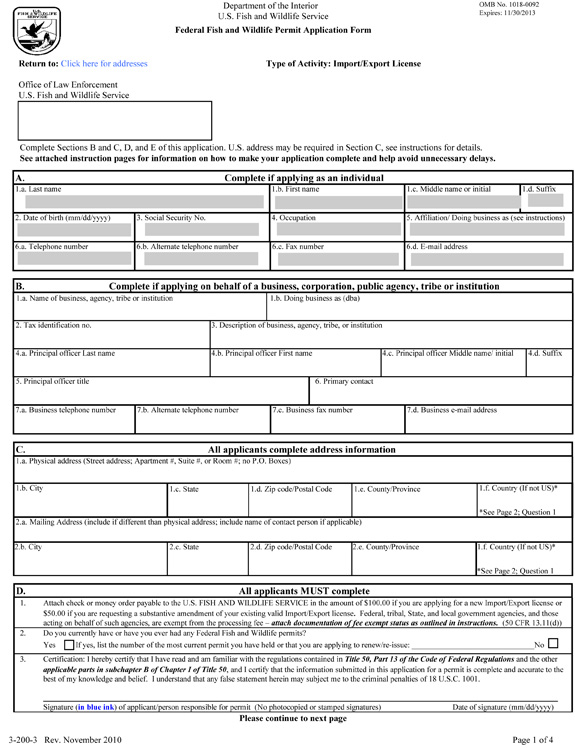
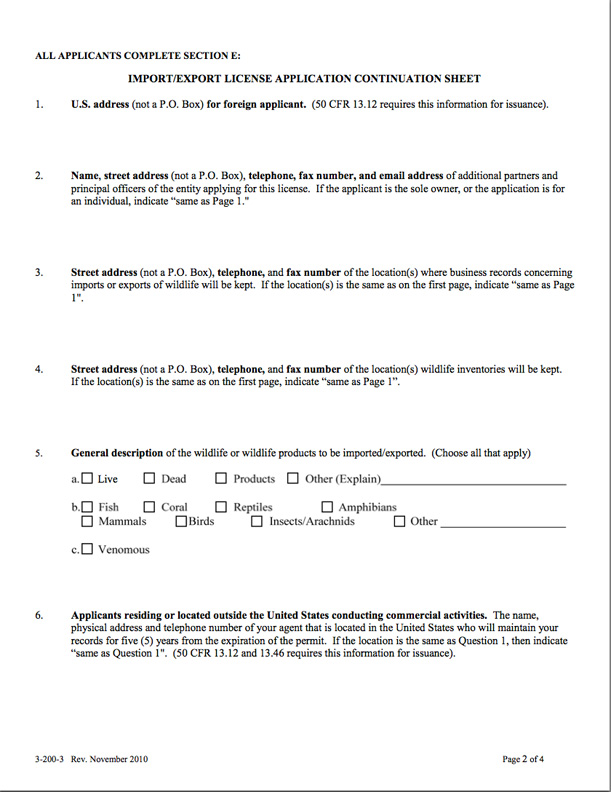
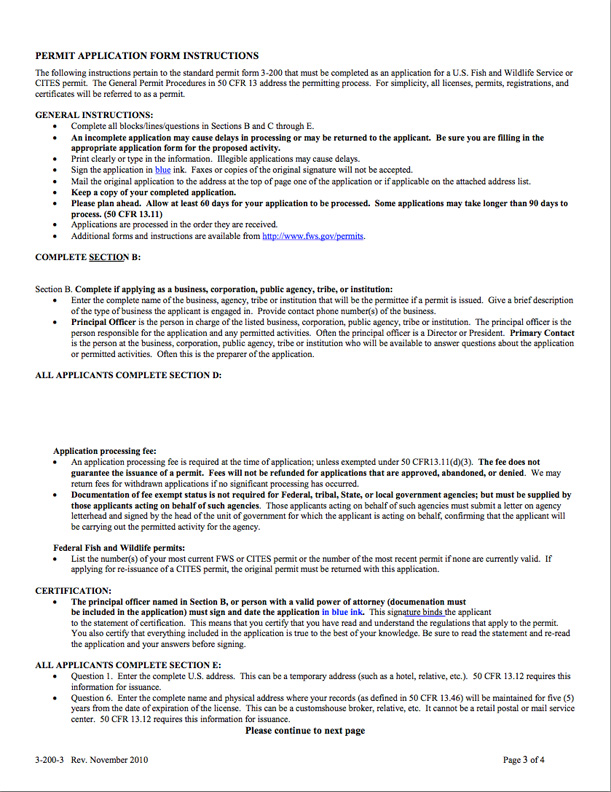
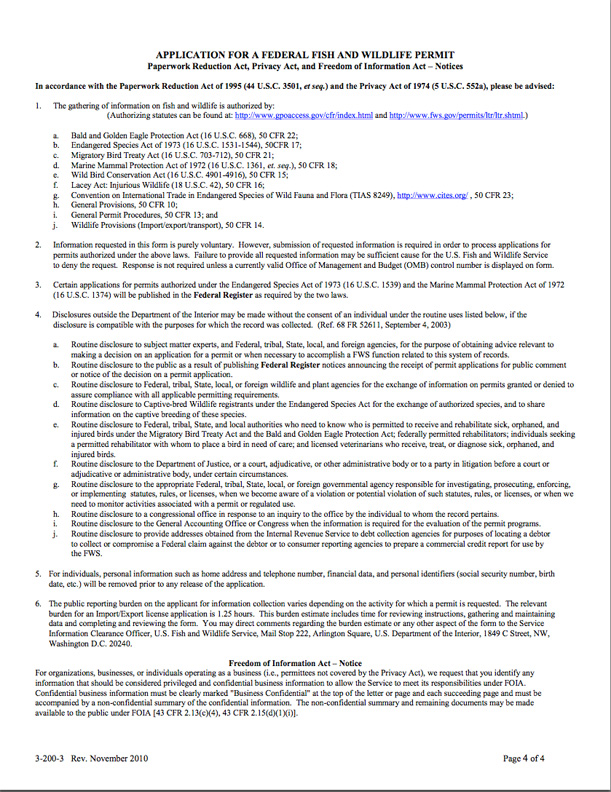
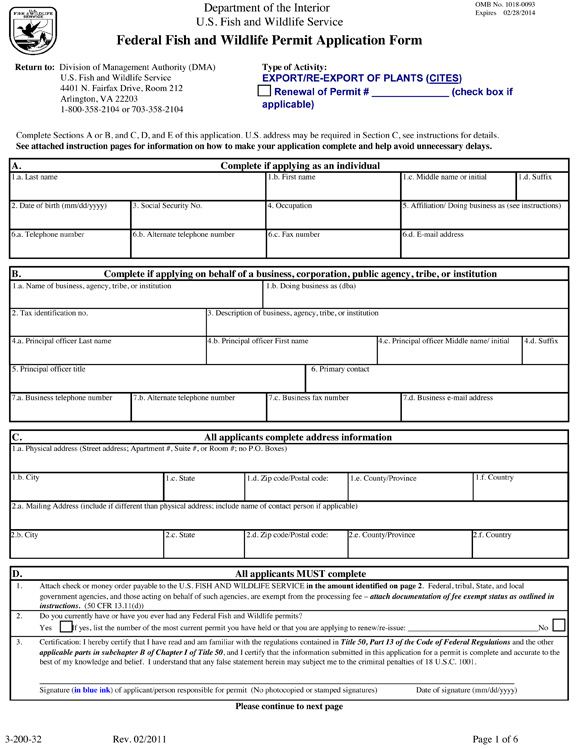
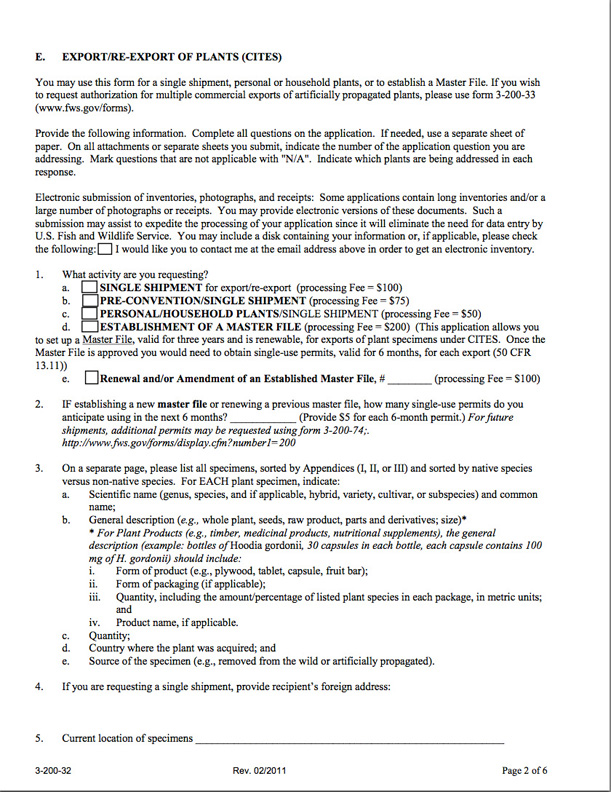
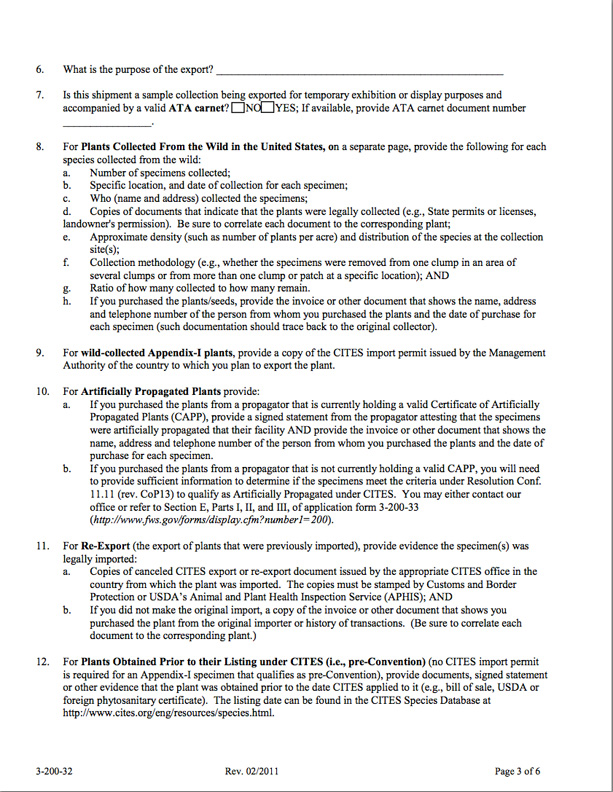
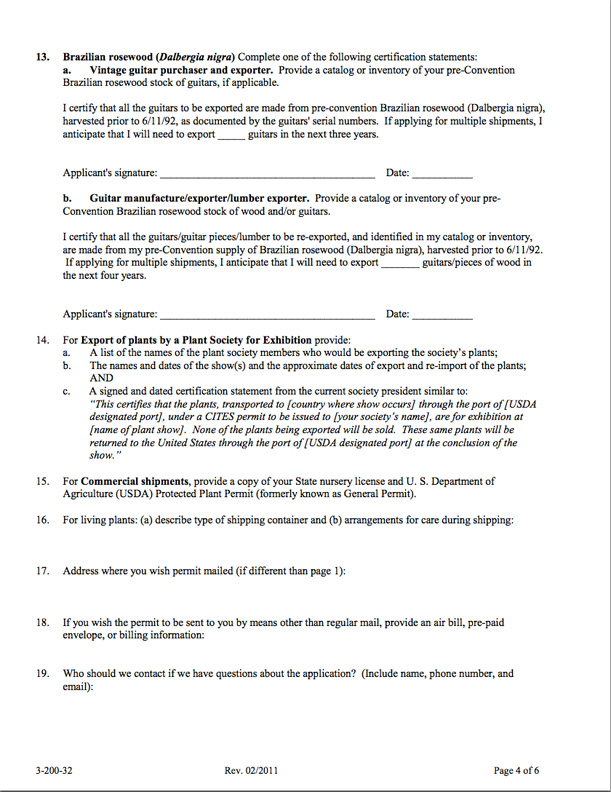
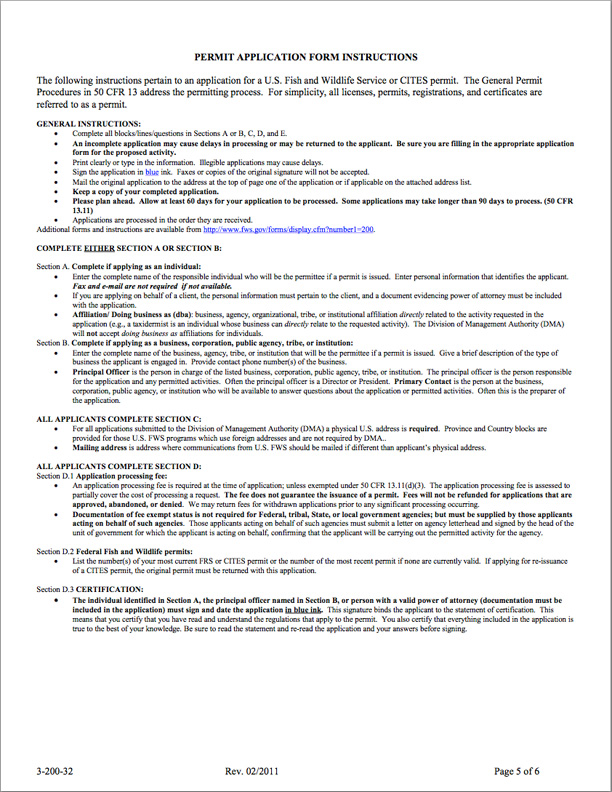
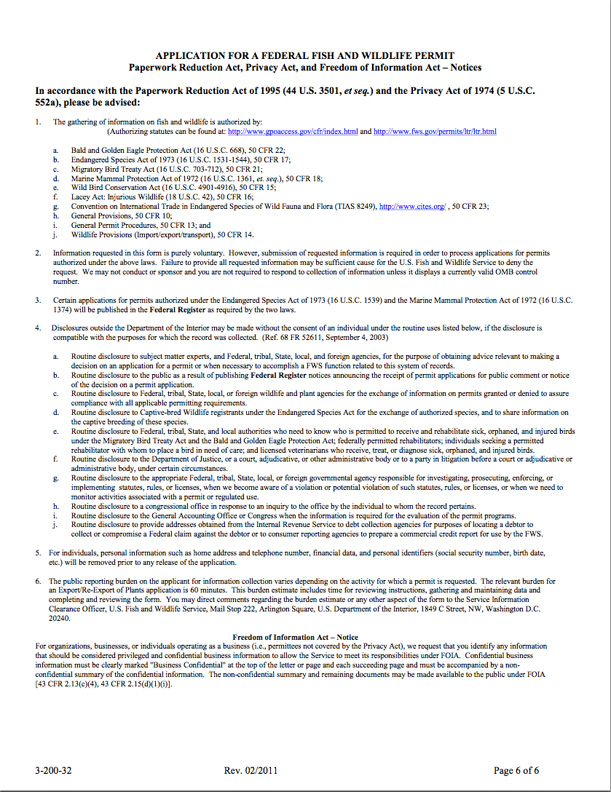
Exhibition, Publication, CD's, Promotion, Web Pages, Tour Books,
to Purchase Photographic Prints, or
If You Have Questions or Suggestions About This Web Site or Vintage Martin Guitars:
e-mail: Robert Corwinentire site copyright ©1998 through 2013 Robert Corwin/Photo-Arts. All rights reserved.